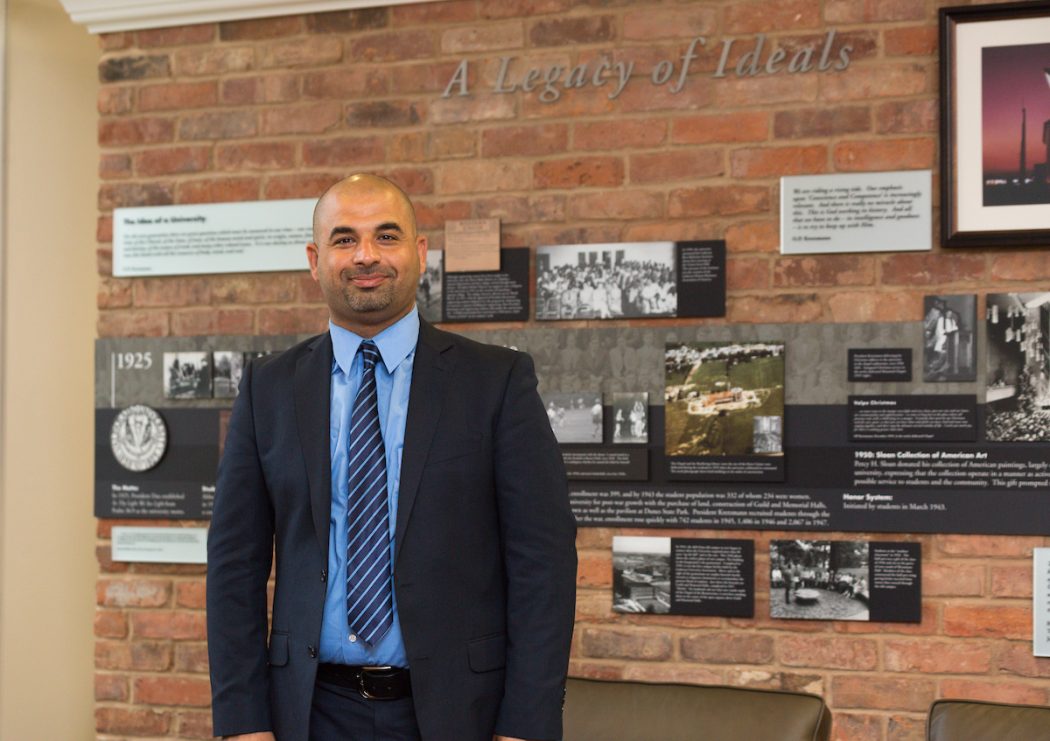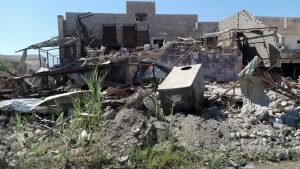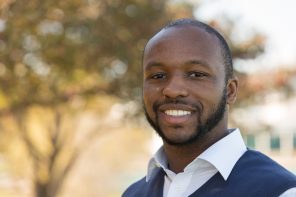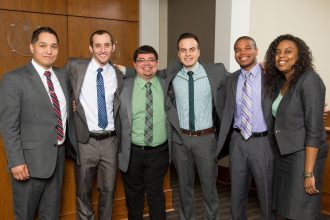Ailan’s family home was bombed by ISIS in the War of Ramadi in 2014. He was targeted because he is an Iraqi police officer. When ISIS came to their door looking for Ailan, his father told them he was studying in Egypt. Fourteen family members fled their home before ISIS insurgents bombed the home and seized their hometown in Anbar Province. They now live as refugees in Kurdistan, where they will stay until their government takes back the city from ISIS.
Ailan is a 2001 graduate of the School of Police Officers of Baghdad, where he earned his bachelor of security information and ranked first in his class of 725. He proceeded to earn a bachelor’s degree in law and political science in 2009 from the University of Anbar, again graduating at the top of his class. Ailan then worked as a legal representative in the courts of Anbar for police officers killed or injured in the line of duty. “I loved it,” said Ailan, who also managed the police department’s legal section. “I wanted to help the families as much as I could.”
A year prior to the ISIS bombing of his home, Iraq’s Higher Committee of Education Development offered to send Ailan to the United States to study law and criminal law because of his high GPA and stellar credentials. “They wanted me to learn everything I could about law and the U.S. legal system and bring it back. Iraq has an excellent legal system, but it could be better,” he said.
Ailan, who knew no English, spent a year in the U.S. learning the language before enrolling in classes at Valparaiso University Law School. “The language was a big obstacle,” said Ailan, who earned his master of laws in May 2016 and graduated with a 4.0 GPA.
I became a part of the community. I love the system and the people are friendly. The faculty were very supportive and helped me learn how to save time and be more efficient.
Ailan volunteered in a food pantry for a year, and also at a Valparaiso law firm. “I went with a lawyer to observe cases to see the difference between the United States and the Iraqi courts system,” Ailan said. “I had the opportunity to see how the court works.” He also interned with the City of Valparaiso Police Department, where he learned American police procedure. As a law student, he traveled to Washington, D.C., met with Associate Justice of the Supreme Court Samuel Alito and visited Congress.
What Ailan learned was that while Iraq has no jury system in its criminal courts, the U.S. does. “In Iraq there are lawyers and judges and the judges decide the cases,” he said. “If Iraqi people pay taxes and vote, why not allow them to give their opinion in a criminal jury system?” Ailan addressed that question in his master’s thesis, “Is the American Criminal Jury System in Criminal Trials Worthy of Export to Iraq?” Ailan asserts that it is. It’s a concept that Ailan is prepared to introduce to his home country and he believes his government will be receptive. “It’s easy to corrupt one, but hard to corrupt 12. We need to put it in the constitution like the U.S. and create laws to protect it. It won’t be easy. We’ll face many obstacles, but that doesn’t mean it will fail. In the United States, the jury system, when adopted from the British, suffered from discrimination and corruption. Now, it’s a symbol of democracy for this great country,” Ailan said.
Ailan returned to Baghdad in August 2016 with his wife, Dalal, and their three young daughters, Noor, Ethar, and Nadine. His youngest daughter, Nadine, was born in the U.S. “Despite many challenges, my family always supported me and allowed me to study,” he said. His Valparaiso University Law School LL.M. helped earn him a promotion on the Iraqi police force and further ignited his desire to create positive change in his country. Because he is a police officer, Ailan knows he is a target for ISIS. He admitted his fear of returning, but said he was committed.
I have to go. I have loyalty to my country. I want to change not just the law, but to also educate people and improve the Iraqi system as much as I can for my people.







